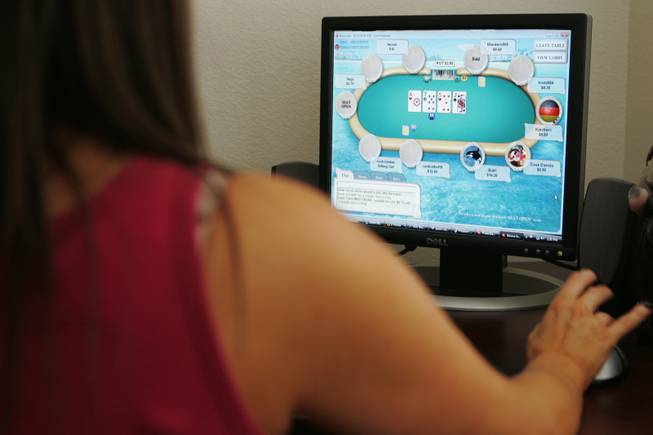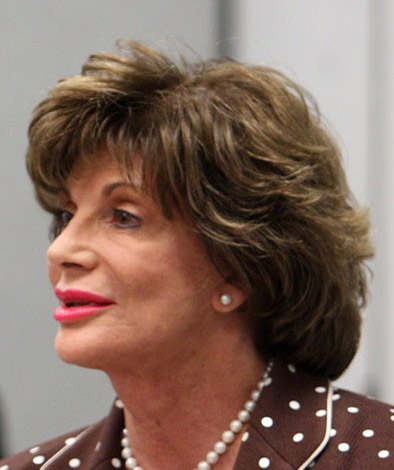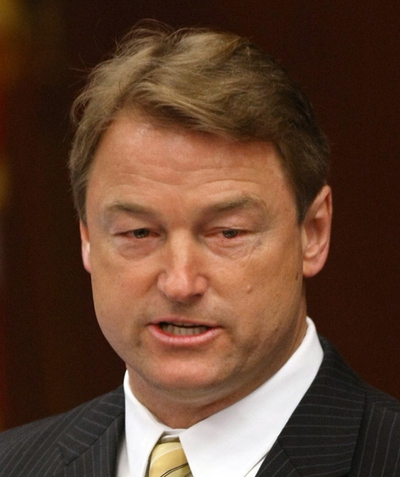Monday, Oct. 10, 2011 | 2:01 a.m.
VEGAS INC archives
Beyond The Sun
It took years to get gaming lobbyists, poker enthusiasts and sympathetic lawmakers to join in an effort to legalize online poker in the United States. But just as they appear close to success, their union is fraying.
The online poker community has been reeling from federal charges against some of its biggest operators. Last spring, the Justice Department walloped three major poker sites — PokerStars, Full Tilt Poker, and Absolute Poker — with charges of bank fraud, money laundering, and other illegal gambling offenses; last month, it added running a $440 million Ponzi scheme to the accusations against Full Tilt.
Those developments highlight, poker lobbyists say, why online poker operators and some 25 million American aficionados must be regulated by U.S. laws and officials.
“These indictments make the case for regulation and legalization in the United States,” American Gaming Association president Frank Fahrenkopf said the day the Justice Department released its Ponzi scheme charge against Full Tilt. “In many ways the actions of the Justice Department, which we fully support, really sort of focus on the need for this legislation more than anything we could say.”
But since the accusations were leveled, there’s been a falling-out between the gaming community and its most dogged advocate for online poker legalization: the Poker Players Alliance.
The main financiers of the alliance — before the scandals exploded — were members of the Full Tilt board.
It’s a relationship the alliance is seeking to distance itself from. The AGA declined to comment on it.
When the allegations against Full Tilt were revealed two weeks ago, Rep. Barney Frank, the top House Democrat on the Financial Services committee and a supporter of legalizing online poker, pledged not only to return the campaign money he’d received from board members, but also the money that he’d gotten from the PPA.
Nevada Reps. Shelley Berkley and Joe Heck and Sen. Dean Heller followed suit, pledging to give their Full Tilt and PPA contributions to charities. (Sen. Harry Reid has pledged to donate the money he received from Full Tilt board members, but is keeping the PPA’s money.)
So far, the division hasn’t caused destructive infighting — as PPA Executive Director John Pappas put it, “everyone’s rowing in the same direction.” But, he admitted, it’s because everyone’s in the race, not because everyone’s obeying the same coxswain.
The PPA, AGA, and lawmakers don’t agree on how to get an online poker bill through Congress.
They’re coming off a very public failure: Last Congress, the gaming community generated enthusiasm for including Internet poker in a must-pass tax bill — but there was only a draft bill, never a deal, and the effort fell apart.
The PPA tried to renew the effort this summer, throwing its weight behind a House bill to legalize poker headlined by Texas Republican Joe Barton and Berkley — but the AGA passed on adding the heft of its own endorsement, as did Reid, whose support is a must for any legislative poker effort.
Now the PPA has been gunning for a new package: the deficit reduction bill.
“We’ve been putting a lot of grass roots pressure on the deficit reduction committee,” Pappas said.
“I respectfully ask that you seriously consider recommending sensible licensing and regulation of online poker within the U.S. in your deficit reduction report to Congress and the President,” reads the sample letter that the PPA has been encouraging its members to send to lawmakers on the 12-member joint select “super” committee.
Prospects there seem tenuous at best.
The key to any deal on online poker appears to be an agreement among existing supporters and Arizona Sen. Jon Kyl, the Republicans’ Whip, and a member of the deficit committee. It was Kyl’s rejection of Internet poker in the tax bill that quashed the gaming lobby’s enthusiasm last year, and his teaming up with Reid to ask the Justice Department to better police the industry this year that revived it again.
But he’s not encouraging the PPA’s proposition.
“I don’t think that would happen,” Kyl said flatly at the suggestion of including an online poker provision in the deficit reduction bill. “And I wouldn’t support it.”
There are good reasons why the deficit committee looks promising to the PPA: the committee is to find ways to offset the national debt, and whatever bill they produce is guaranteed a straight shot at a vote, no filibusters allowed. Online poker, through the licensing fees that would be collected as part of the regulatory process, will make money that could be applied to the deficit without cutting programs or raising taxes.
But that doesn’t address a deeper issue shared by many Republicans, including Kyl: They just don’t want the federal government getting into the business of gambling.
The AGA seems to be angling for a different route than the PPA.
The companies of two AGA board members, Caesars and MGM, are backing a new crew: Fair Play USA, whose chief lobbyists are former Department of Homeland Security chief Tom Ridge and former FBI director Louis Freeh. The group is emphasizing the enforcement platform over the potential for revenue; they barely even mention the money anywhere on their website.
“We’re hoping that there will be another piece of legislation introduced in this Congress that will be more definite,” Fahrenkopf said. “We hope to see additional legislation sometime in the next month.”
It’s a tight schedule: once the calendar turns to 2012, the primary season starts, and every step in Washington becomes a potential issue for the election — an election in which Reid needs to keep most of his Senate Democrats safe.
Waiting until after the elections is also risky business: recent experience suggests lame ducks are not the best time to strike complicated deals; and past that, there’s no guarantee that Reid will remain the majority leader. After next year, Kyl will be gone: he announced his retirement long ago, and the poker lobby doesn’t have that many influential Republican prospects it can call on as a replacement.
That leaves only a few options — the deficit reduction package or Obama jobs bills. But there, Reid has put a damper on speculation as Kyl did with the deficit bill.
Though Reid’s called online poker a proposal that could create “jobs, and lots of jobs,” but that it’s not something they’re working on. “Online poker, frankly, is way back in my head,” he said.




Join the Discussion:
Check this out for a full explanation of our conversion to the LiveFyre commenting system and instructions on how to sign up for an account.
Full comments policy